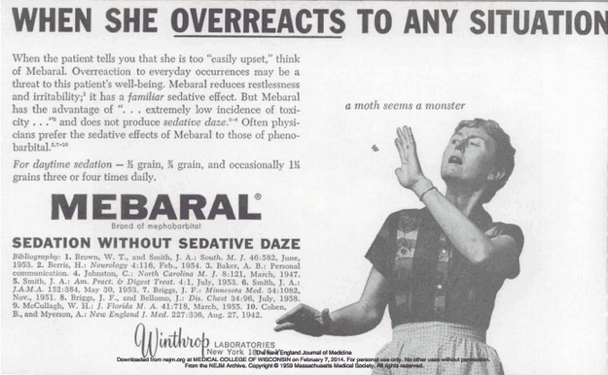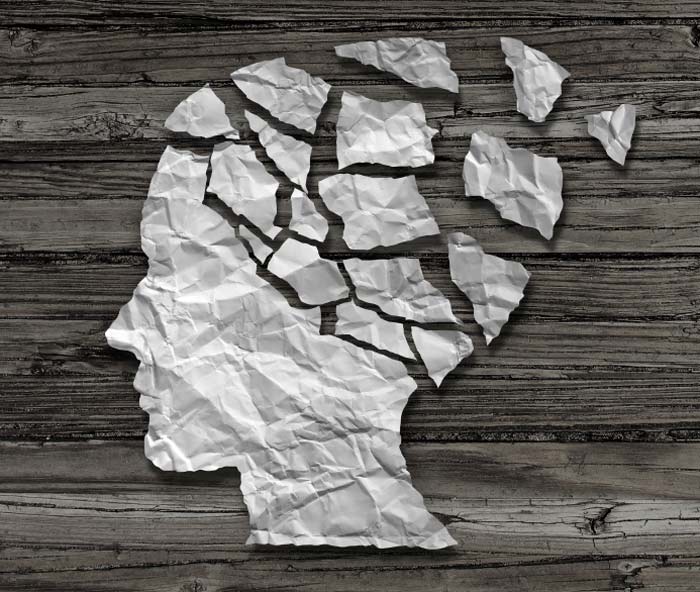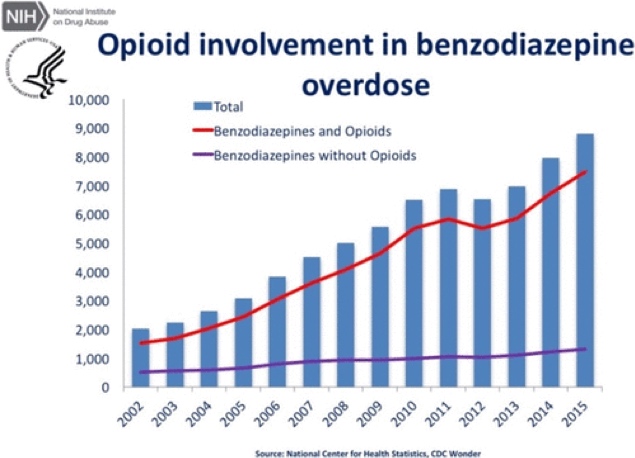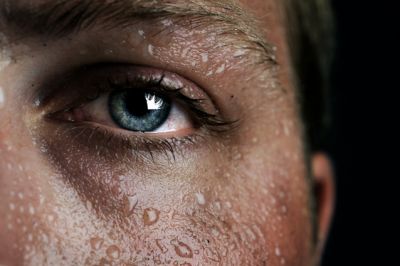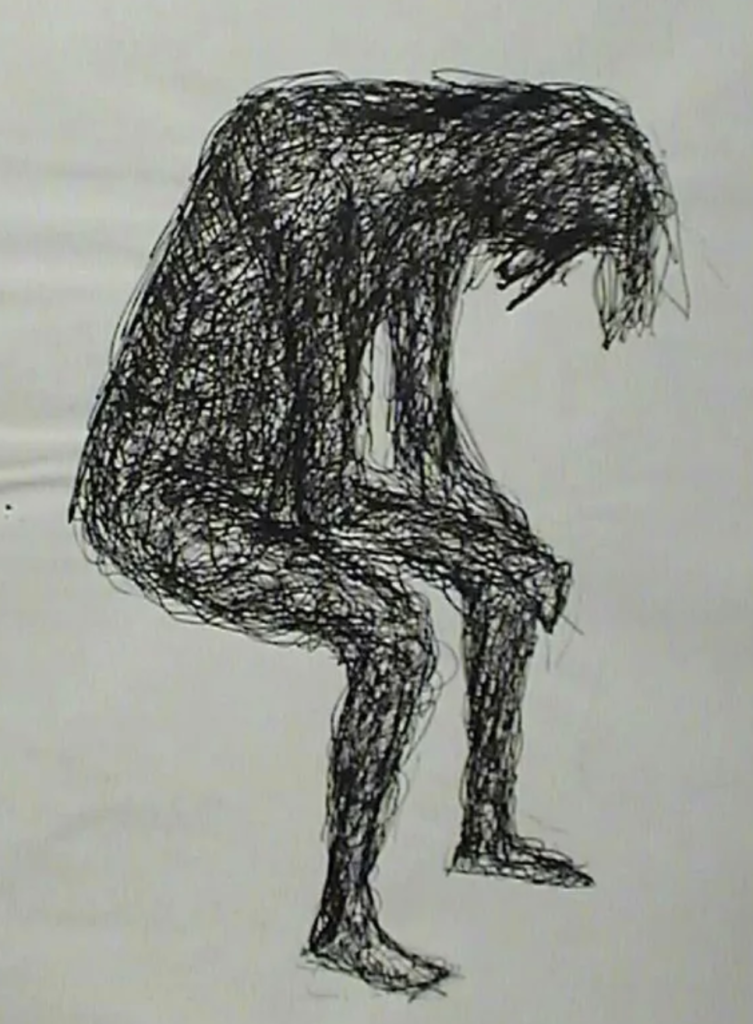The first benzodiazepine, known as Chlordiazepoxie was first discovered in 1954 by Roche scientists Leo Sternbach.
Leo Sternbach was known to be a lover of chemistry.
In addition, he held 241 US patents; and, on the 40th anniversary of diazepam, said:
“It [chlordiazepoxie] has no unpleasant side-effects. It gave you a feeling of well-being. Only when sales figures came in, then I realised how important it was [9].”
Leo Sternbach found that Chlordiazepoxide had several effects in animal studies, including sedative properties, along with anti-convulsant and muscle-relaxing properties [2].
It was then marketed as Librium, in 1960, followed in 1963 by the synthesis and marketing of Valium, also known as diazepam [1].
To date, and since the 1970s, benzodiazepines have become one of the most widely prescribed drugs in the world [4].
Currently, around 15 different types of benzodiazepines are licensed by the FDA in the United States [8].
Benzos have the potential for abuse, and they are commonly abused with alcohol – making a lethal mix.
Sadly, Benzos have also been used as ‘date rape’ drugs; since they can greatly impair an individual’s ability to resist against sexual assault [8].
By 1973, benzodiazepines had over 80 million prescriptions.
between 2002 to 2007 US prescriptions of benzodiazepines increased to 83 million.
This rate of use declined during the 1980s and 1990s as other pharmaceutical ‘blockbuster drugs’ such as Prozac and other antidepressants surpassed, and displaced their sales [3].
It was not until a physician, David Knott at the University of Tennessee, voiced his concern at the associated short-term memory loss with patients on benzodiazepines.
He said of Benzos:
“I am very convinced that Valium, Librium, and other drugs of that class cause damage to the brain. I have seen damage to the cerebral cortex that I believe is due to the use of these drugs, and I am beginning to wonder if the damage is permanent.”
These drugs were initially marketed for use in anxiety [4].
Other conditions that Benzos were used for, include:
- Anxiety and panic
- Seizures
- Insomnia
- Sedation (prior to surgery)
- Muscle relaxation
- Alcohol withdrawal
- Depression.
In the 1980s, people who had long-term prescription to benzodiazepine caught on to the adverse effects of these drugs.
They noticed the difficulty in trying to stop taking Benzos, in large part due to the associated withdrawal effects.
In fact, they weren’t addicted, but were victims of something known as iatrogenic dependence.
This followed with a widespread outcry in the UK, where this awareness had first come about, leading to a barrage of publicity surrounding benzodiazepines.
Consequently, this led to a reduction in use.
Benzos are also implicated in a ‘hangover’ effect the day after being taken [11].
Moreover, and what is equally worrying, is that Benzos can cause memory and cognitive impairment, rapid development of tolerance, rebound insomnia if dosage is stopped, and abuse and dependence [11].
These cumulative problems have led medical professionals to prescribe other drugs for the treatment of insomnia.
One such case is the rise of prescribing the drug trazodone [11].
Trazodone is an FDA-approved drug for the treatment of depression [11].
Benzo overdose can result in coma and even death through what’s known as respiratory depression [14].
This risk of severe illness and death is increased if benzos are mixed with other drugs, such as opiates or alcohol [14].
1998 to 2005 saw the introduction of z-drugs, including zopiclone, zolpidem and zaleplon. However, just like benzos, these z-drugs aren’t without their associated side effects.
But, what is the current opinion of GP’s towards Z-drugs?
Well, one UK study took the task of figuring out doctors perceptions of Benzos and Z-drugs [10].
The study was able to show that doctors believed Z-drugs to be:
more effective and safer than Benzos [10], with most doctors in the study attributing a greater efficacy and less side effects to z-drugs [10].
In addition, it was estimated that a little over 26% of the adult UK population have tried a Benzo or z-drug [12].
It is now known, after almost five decades that since the first shelving of benzodiazepines:
an estimated 4 million Americans are addicted to these drugs [5].
Moreover, up to 1 million people in the UK are still prescribed long-term use of benzodiazepines [6; 7].
Z-drugs, such as Zopiclone work in such a way that produces the same hypnotic effect as benzodiazepines, but avoids the undesired side effects often produced by Benzodiazepines [13].
This does not mean, however, that z-drugs like zopiclone are without their own side effects.
Z-drugs are taken as short-term treatments of insomnia.
More specifically, people should only be using z-drugs in situations where anxiety and/or sleeping difficulty will last a short time [15].
long-term use of sleeping pills, like Z-Drugs and Benzos, will cause side effects and such adverse outcomes like tolerance, dependence, which can manifest into psychological and physical symptoms.
If z-drugs are taken for longer than prescribed, then withdrawal symptoms can last anywhere from up to six weeks, or longer [15].
It is easier to stop taking z-drugs between 2-4 weeks (considered short-term treatment).
You are less likely to become dependent on z-drugs if taken for a short-term period [15].


